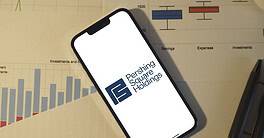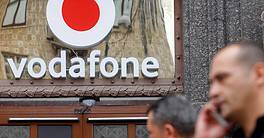ASIA
Taiwan-based Chi Mei Optoelectronics, which produces thin-film transistor, or TFT, liquid crystal displays for flat-screen computers, cell phones and televisions, raised $573 million through offerings of global depositary receipts.
The company plans to build three plants in an industrial park in southern Taiwan in the next three to five years to meet growing demand for flat-panel displays. Chi Meis clients include US companies, such as Dell Computer and Hewlett-Packard.
In conjunction with its GDR offerings, Chi Mei set up sponsored GDR programs on the Luxembourg Stock Exchange under Regulation S and in the United States under Rule 144A, JPMorgan Chase announced as depositary.
Rule 144A of the US Securities Act of 1933 applies to private resales of restricted securities to qualified institutions.The securities are not listed on a US exchange or automated inter-dealer system.
Regulation S sets rules governing offers and sales made outside of the US without registration with the US Securities and Exchange Commission.
The GDR offerings raised $503 million for the Regulation S program and $70 million for the Rule 144A program. Each GDR is equivalent to 10 of Chi Meis common shares.
The offerings, which followed a lengthy road show through Asia, Europe and the US,were heavily oversubscribed. JPMorgan acted as sole bookrunner. Co-managers were BNP Paribas Peregrine and Taiwan- based KGI Securities.
Daiwa Securities, which acted as lead manager of a POWL,or public offer without listing, in Japan,was allocated 12% of the deal.
Indian Biotech Issues GDRs
Mumbai-based Sterling Biotech raised $15 million by issuing 2.3 million GDRs under a Regulation S program. Each GDR is equivalent to six common shares.
The company plans to use the proceeds of the issue to help fund a 70% expansion in its production of pharmaceutical gelatin.
Elsewhere in Asia, Singapore- based Citiraya Industries launched a Level I ADR program in the US over-the-counter market. The company recycles electronics, including cell phones and batteries.
THE AMERICAS Cemex Completes Equity Offering
Monterrey, Mexico-based Cemex, a global cement producer, completed a non-dilutive equity offering designed to simplify its capital structure.
The company announced that it and certain holders of its American depositary shares sold a total of 29.3 million ADSs, including an over-allotment of 3.8 million ADSs to the underwriters. Citigroup Global Markets acted as global coordinator for the offering.
Proceeds received by Cemex and the selling ADS holders were approximately $660 million, after underwriting discounts and commissions.According to Cemex, some $538 million of the proceeds will be used to unwind several forward contracts entered into between Cemex subsidiaries and certain banks, including the selling ADS holders.The remaining $122 million, before expenses of the offering, was to be paid to Cemex.
The transaction did not increase the number of shares outstanding, and thus did not dilute shareholders.
Rodrigo Trevio,Cemex CFO, says the offering was in line with the companys objectives and stated financial strategy.We believe this is an important step, and one of several we have taken during the course of the year, to simplify our capital structure, he says.
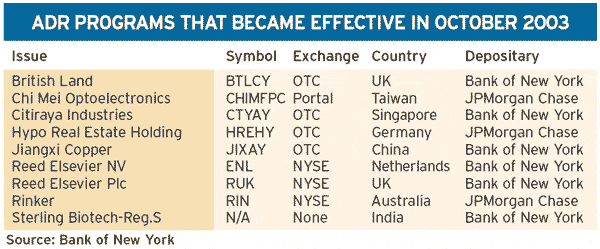
Investors Give Edge To Local Shares
A slightly greater number of institutional investors prefer ordinary shares to ADRs, due to generally greater liquidity in local markets, according to a survey by Thomson Financial and JPMorgan Chases ADR group.
The survey of 102 institutional investors who hold ADRs found that 37% would rather buy ordinary shares, while 30% preferred ADRs, mainly because of lower custody and holding costs, as well as trading efficiency.Another 24% of those surveyed said the decision was made on a case-bycase basis and depended on such factors as market access and liquidity. Some investors did not answer every question. Respondents who preferred ordinary shares also cited access to a greater range and number of companies than in the ADR universe, and a reluctance to pay the generally higher premiums on ADRs versus local shares.
Nearly two-thirds of the investors surveyed said they felt more comfortable buying exchange-listed ADRs rather than ADRs that trade in the over-thecounter market, mostly due to accounting and compliance-related issues.
EUROPE Reed Elsevier Selects Depositary
Bank of New York was selected as successor depositary for the two New York Stock Exchange-listed ADR facilities of global publisher Reed Elsevier.
ADRs of Reed Elsevier NV, whose ordinary shares are listed on the Amsterdam Stock Exchange, trade on the NYSE under the symbol ENL. Each ADR represents two ordinary shares.
Reed Elsevier plcs ordinary shares are listed on the London Stock Exchange; its ADRs, which represent four ordinary shares, trade on the NYSE under the symbol RUK.
Separately, British Land selected Bank of New York as depositary for its ADR program. British Land is a constituent of the FTSE 100 Index, and its ordinary shares are listed on the London Stock Exchange. Each ADR represents one ordinary share.
British Lands main activities are property investment and development.
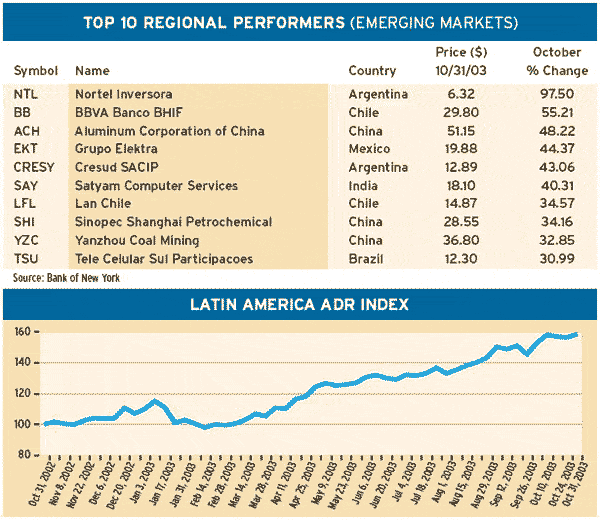
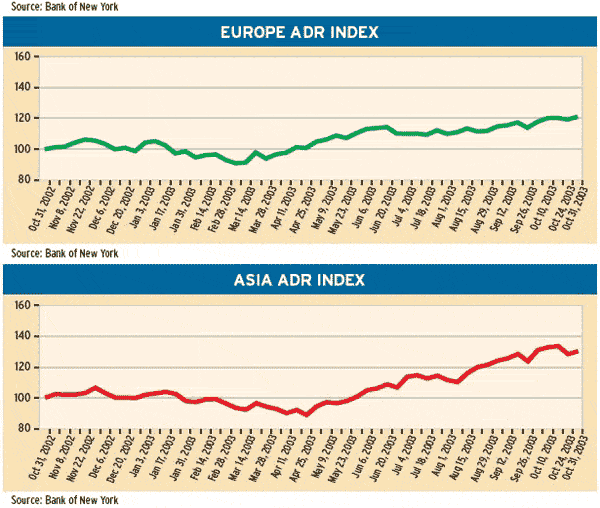
Gordon Platt


